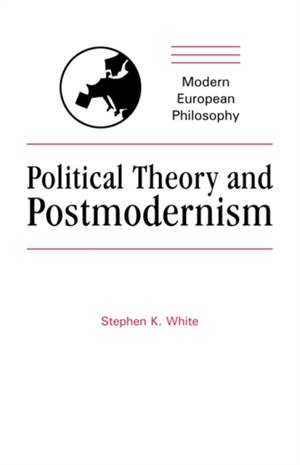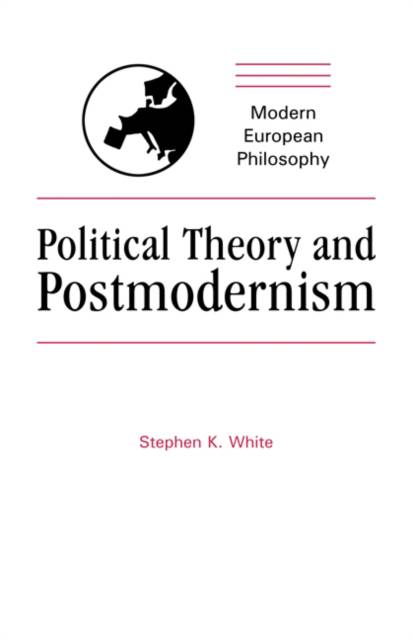
Bedankt voor het vertrouwen het afgelopen jaar! Om jou te bedanken bieden we GRATIS verzending (in België) aan op alles gedurende de hele maand januari.
- Afhalen na 1 uur in een winkel met voorraad
- In januari gratis thuislevering in België
- Ruim aanbod met 7 miljoen producten
Bedankt voor het vertrouwen het afgelopen jaar! Om jou te bedanken bieden we GRATIS verzending (in België) aan op alles gedurende de hele maand januari.
- Afhalen na 1 uur in een winkel met voorraad
- In januari gratis thuislevering in België
- Ruim aanbod met 7 miljoen producten
Zoeken
Omschrijving
Postmodernism has evoked great controversy and it continues to do so today, as it disseminates into general discourse. Some see its principles, such as its fundamental resistance to metanarratives, as frighteningly disruptive, while a growing number are reaping the benefits of its innovative perspective. In Political Theory and Postmodernism, Stephen K. White outlines a path through the postmodern problematic by distinguishing two distinct ways of thinking about the meaning of responsibility, one prevalent in modern and the other in postmodern perspectives. Using this as a guide, White explores the work of Heidegger, Foucault, Derrida, Lyotard, and Habermas, as well as 'difference' feminists, with the goal of showing how postmodernism can inform contemporary ethical-political reflection. In his concluding chapter, White examines how this revisioned postmodern perspective might bear on our thinking about justice.
Specificaties
Betrokkenen
- Auteur(s):
- Uitgeverij:
Inhoud
- Aantal bladzijden:
- 172
- Taal:
- Engels
- Reeks:
Eigenschappen
- Productcode (EAN):
- 9780521409483
- Verschijningsdatum:
- 30/08/1991
- Uitvoering:
- Paperback
- Formaat:
- Trade paperback (VS)
- Afmetingen:
- 140 mm x 215 mm
- Gewicht:
- 244 g

Alleen bij Standaard Boekhandel
+ 129 punten op je klantenkaart van Standaard Boekhandel
Beoordelingen
We publiceren alleen reviews die voldoen aan de voorwaarden voor reviews. Bekijk onze voorwaarden voor reviews.









